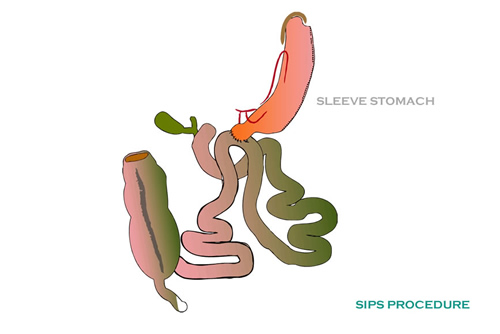
Duodenal switch procedures have doubled in prevalence in the USA from 2014 to 2016 and according to many surgeons its popularity will continue to climb over the next five years.
Duodenal switch (DS) is well established as one of the most effective weapons against severe obesity and medical comorbidities such as diabetes. Conventional duodenal switch has been studied for over 15 years but has not been universally popular due to adverse effects such as diarrhoea and malnutrition issues. The SIPS or SADI version of DS on the other hand appears to have comparable excellent weight loss outcomes but much reduced rates of adverse effects. This is the key reason why its popularity is burgeoning in many parts of the world including USA and Europe.
The issue of who might be most suitable for the DS procedure was discussed in detail in Washington at the 2017 Obesity Week conference. The key question for discussion was who is likely to do ok with a standard sleeve gastrectomy and who may need a more the second stage applied, for example, the SIPS operation.
According to SIPS pioneers Dan Cottam and Mitch Roslin those at risk for having a poor long term result from sleeve broadly speaking include:
1. patients with BMI greater than 50
2. diabetic patients with BMI greater than 40
BMI is Body Mass Index and is calculated by dividing your weight by the square of your height in metres.
Also SIPS pioneers Dan Cottam (Salt Lake City) and Mitch Roslin (New York) presented data regarding early prediction of poor results after sleeve. For example, at 3 months post sleeve, those who had not achieved 35% excess weight loss were less likely to have a good result overall in the long term.
Based on these results, it was recommended that patients in these categories might consider the more effective SIPS option which should increase the likelihood of an excellent long term outcome.
In Australia the SIPS operation has been performed for over two years with selected clinics offering the procedure either as a primary option or for revision of a sleeve gastrectomy with a substandard outcome.
More information on SIPS can be found at this link.